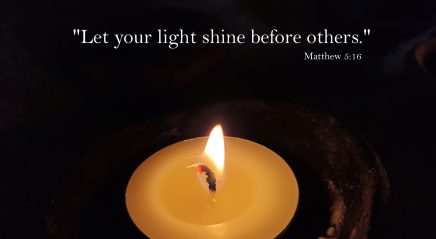Lectionary blog for Dec. 23
The Fourth Sunday of Advent
Micah 5:2-5a; Psalm 80:1-7;
Hebrews 10:5-10; Luke 1:39-55
The world’s celebration of Advent and Christmas is surrounded by song. Almost no secular musician or singer puts out a Thanksgiving or Easter CD, but almost all try to “cash in” on Christmas, either a compilation of new songs or a collection of old favorites. “Christmas” songs fill the malls and stores and radio playlists from late October until Dec. 25. We have lots of good Thanksgiving and Easter hymns, but the non-church world is much more likely to know “Over the River and Through the Woods” and “Here Comes Peter Cottontail” than “Now Thank We All Our God” or “Thine Is the Glory.”
But not so with Christmas carols. Almost everyone can sing at least one verse of “Away in a Manger” or “O Little Town of Bethlehem,” and most can recognize the tunes of a dozen more. Is it just the constant exposure to these songs; or is there something about the birth of Christ that makes us want to sing?
It was like that from the beginning. In today’s Gospel, Mary is visiting her kinswoman Elizabeth who, like her, is pregnant. Elizabeth says her baby, the future preacher to be known as “John the Baptizer,” has leapt in her womb in recognition that the child Mary carries is the messiah. Mary responds by breaking out in song.
On Dec. 9, the Second Sunday of Advent, our Psalmody was Luke 1:68-79, “The Benedictus” (Evangelical Lutheran Worship, 200-203). There we read about Elizabeth’s husband Zechariah celebrating the birth of this same child, John the Baptizer, with a song about the coming messiah. Of course, the angels sing to the shepherds on the night of Christ’s birth (Luke 2:13-14; ELW, 270, for example). One of my favorite “birth of Christ” stories is Luke 2:22-35. It tells of the time Mary and Joseph brought Jesus to the temple for dedication, and old Simeon saw the baby and burst into a song of praise to God for sending the messiah.
Again, what is it about Christmas that causes us to sing?
It seems to me that the only really appropriate response to mystery is adoration, and what better way to adore than to sing. The story that we anticipate during Advent is a “something more” mystery. Underneath all the theological speculation and argumentation there is this for all of us: life can be very ordinary, difficult, painful, short and depressing. The birth of a child as the Son of God—a message from beyond that God does love us after all, that this world is not “all there is,” that peace and love and joy are real and really important and really possible—is a message we all need to hear. So even those who have their doubts about God, Jesus and the church often can believe in the “something more” that Christmas represents to them: the potential for good in a cold and lonely world. And that “mysterious possibility” is something to sing about.
And, for those of us who receive this as a true story, a story about how the God of the universe let go of all the trappings and power of heaven to come and be born in a stable, taking on, as the eucharistic prayer of Hippolytus says, “our nature and our lot” (ELW, page 69), well that, too, is a mystery beyond words. We cannot comprehend a love that big and deep and complete. So when ordinary words fail us, we, like Mary, Zechariah, Simeon, the angels and all the hosts of heaven burst into song. “My soul magnifies the Lord!” indeed.
Amen and amen.









